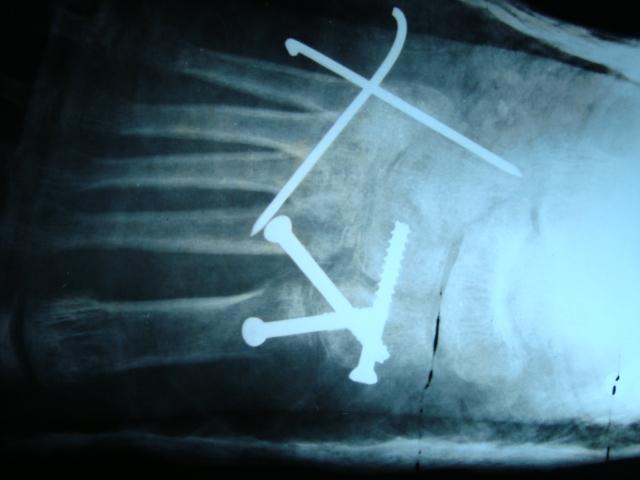A witness is not required for an informed consent as per the law. If you prefer the presence of a witness it is advisable for the witness to be an unbiased third party, rather than a relative/attender of the patient.
Dr. Madhan Jeyaraman, Department of Orthopaedics, ACS Medical College and Hospital, Dr MGR Educational and Research Institute, Chennai, Tamil Nadu, India. E-mail: madhanjeyaraman@gmail.com
Informed consent is an exercise to protect the right of the patient to make an informed decision regarding his/her willingness to undergo a procedure. The doctor needs to explain all aspects of the procedure to the patient beforehand, including the nature of the procedure, its purpose, alternatives, and possible complications. The patient’s signature is required on a written informed consent to document their willingness for the procedure. It is required by law that such an informed consent be obtained from every patient undergoing any invasive procedure. However, the role of a witness for the informed consent is ambiguous. This brings up certain important questions regarding the witness for an informed consent – is it necessary? And if so, who should be a witness? These questions have been largely been unexplored and unanswered. There is scarce literature regarding the requirement and role of a witness for an informed consent before an invasive procedure/surgery. The supreme court of India, even in its landmark judgment on the requirements of informed consent, did not address the role of a witness for the consent. While it laid down the guidelines for a valid informed consent and explained the contents to be present in an informed consent, it made no mention of requiring a witness to be present at the time of obtaining such consent [1].
Is a Witness Necessary?
It is important to note that the law does not require a witness to an informed consent. An informed consent is intended to document the willingness of the patient for a procedure to be performed on his/her own body. The patient is the sole holder of the autonomy to decide on any procedure over his/her body, provided he/she is of sound mind and legally qualified to possess that autonomy. If an individual is unconscious, of unsound mind, or a minor, the consent of a legal guardian or legally acceptable representative is required. In such cases, however, the individual is giving consent on behalf of the patient, and it is not regarded merely as a witness. A witness does not hold any autonomy over the patient and hence has no legal right in making decisions regarding the patient’s health. Then, why even have a witness to an informed consent? The proponents of obtaining the signature of a witness believe that it would reinforce the validity of the consent with someone apart from the patient and doctor to acknowledge the voluntary nature in which the consent was obtained from the patient. The signature of the witness on an informed consent form only attests that the points mentioned in the form were indeed explained by the doctor to the patient. The understanding of the witness regarding the procedure planned and the witness’s personal opinion regarding the procedure does not have any bearing on the informed consent. However, those contending the presence of a witness believe that this could unnecessarily complicate the process of obtaining informed consent. It raises the issue of confidentiality as the doctor is legally permitted to disclose the information regarding the patient’s health only to the patient, those involved in the treatment of the patient and individuals permitted by the patient. Revealing details about the patient’s condition to a witness during the process of informed consent would thereby require the consent of the patient beforehand. It also creates confusion in determining who is eligible or suitable to be a witness. An unsuitable witness would undermine the purpose of the witness entirely.
Who Should the Witness Be?
Considering that the witness is only required to attest the voluntary nature of the patient’s consent, it would seem like any individual apart from the patient and doctor is eligible to be the witness to the procedure. This is why in most hospitals, the witness is often a relative/attender of the patient. This practice is convenient as they are often present during the counseling of the patient, have the permission of the patient to be present during the consent process, and supplement as moral support for the patient during the process. However, the legal implications of who the witness is, may not be that simple. We have to note that the role of the witness gains importance only when there is a dispute between the patient and doctor regarding the informed consent. It is in the event of a patient and doctor contradicting each other regarding the voluntary nature or authenticity of the informed consent document in a court of law that the observation of a witness may lead to resolution of the issue. Consequently, the bias of a witness actually becomes exceedingly relevant. It would therefore be advisable for the witness to be an unprejudiced third party, not directly associated with the patient or doctor/hospital. A patient in an adjacent bed/room or the attender of a different patients in the outpatient clinic/ward could be regarded as fairly unbiased. It should also be ensured that this witness chosen understands the language in which the consent form in explained to the patient. In the event that the patient does not know to read the language of the informed consent form, the witness would also need to attest that the form has been translated to the patient by the doctor/translator/by the witness themselves. Hence, it becomes paramount that the witness knows the language in which the consent form is written and the language in which it is explained to the patient. It is advisable, for ethical reasons, that at least oral consent should be taken beforehand from the patient for the particular individual to be the witness of the informed consent. It is also the responsibility of the doctor to ensure that the details of the witness are adequately documented including the name, address, and phone number of the witness. This is, however, rarely practiced. Patients often find it unjustified to have the presence of an unknown, non-medical professional during the explanation of the procedure. Doctors also are often skeptical regarding the traceability or cooperation of a witness unrelated to the patient/hospital to appear in a court of law for legal proceedings in relation to the case. If such concerns are valid in the particular case, the question arises as to who is more suitable as a witness? A relative/attender of the patient or a nurse/hospital employee is not directly involved in the care of the patient? While both options would have a bias toward patient or doctor, it is our recommendation that in such a situation, it is preferable for a hospital employee not directly involved in the care of the patient to be the witness. In the event of the informed consent being disputed in a court of law, it is likely that the patient will claim the informed consent to be falsified, tampered with, or obtained without revealing all details mentioned in it. In such a situation, in the absence of other undeniable evidence, the court of law may have to rely on the probability of occurrence based on the accounts of the patient, doctor, and witness. If the witness was to be a relative/attender of the patient, they would also likely second the claim by the patient. Even if the consent was obtained in a legitimate manner, the opinions of the patient and witness would outnumber that of the doctor obtaining the consent. Hence, choosing a hospital employee as the witness would safeguard the interest of the hospital to a certain extent. However, the inherent bias in choosing a hospital employee or patient’s relative as the witness is obvious, and hence for ethical reasons, we recommend only using an unbiased third party with no association to the patient/hospital as the witness.
Can We Take a Note from the Witness for Informed Consent in Research Studies?
The role of a witness in the informed consent for participation in research on human subjects has only been scantily explored but could provide some framework for the witness to informed consent for a surgery/invasive procedure. The Declaration of Helsinki states that only if the consent cannot be obtained in writing, the non-written consent must be formally documented and witnessed [2]. The guidelines for good clinical practice by the International Commission for Harmonization state the role of the witness arises only in cases where the research participant is illiterate [3]. The United States Food and Drug Administration in its guidelines for informed consent recommends that an impartial third party, not otherwise connected with the clinical investigation (for example, clinical staff not involved in the research or a patient advocate), serves as the witness [4]. Angeles-Llerenas et al. explored the role and responsibility of the witness in informed consent and found that most international and national regulations do not discuss examples of good practice or provide clear descriptions of the ways in which a witness can enhance the protection of research participants [5]. Sil and Das state that an impartial witness is a person who is independent of the trial and cannot be unduly influenced by the people involved with the trial, and usually, the patient party of the subsequent patient is taken as impartial witness [6].
A witness is not required for informed consent as per the law. If the doctor/patient prefers the presence of a witness to attest the voluntary nature/completeness of the informed consent, it is advisable for the witness to be an unbiased third party. An employee of the hospital not directly associated with the care of the patient is still a better witness than a relative/attender of the patient; however, both of these choices as witnesses pose ethical obstacles due to inherent bias.
References
- 1.Samira Kohli vs Dr. Prabha Manchanda and Anr on 16th January, 2008. Case No.: Appeal (civil) 1949 of 2004. Supreme Court of India. Available from: https://indiankanoon.org/doc/438423 [Last accessed on 2021 Oct 24]. [Google Scholar]
- 2.World Medical Association (WMA). Declaration of Helsinki. Tokyo: WMA; 2004. p. 22. Available from: https://www.wma.net/what-we-do/medical-ethics/declaration-of-helsinki/doh-oct2004 [Last accessed on 2021 Oct 24]. [Google Scholar]
- 3.International Conference on Harmonization (ICH). Guidelines for Good Clinical Practice. ICH: E6(R2); 2016. Available from: https://database.ich.org/sites/default/files/E6_R2_Addendum.pdf [Last accessed on 2021 Oct 24]. [Google Scholar]
- 4.U.S Food and Drug Administration. Informed Consent- Draft Guidance for IRBs, Clinical Investigators, and Sponsors; 2014. Available from: https://www.fda.gov/regulatory-information/search-fda-guidance-documents/informed-consent#writtendocumentation [Last accessed on 2021 Oct 24]. [Google Scholar]
- 5.Angeles-Llerenas AR, Wirtz V, Lara-Alvarez CF. The role and responsibilities of witnesses in the informed consent process. Dev World Bioeth 2009;9:18-25. [Google Scholar]
- 6.Sil A, Das NK. Informed consent process: Foundation of the researcher-participant bond. Indian J Dermatol 2017;62:380-6. [Google Scholar]








